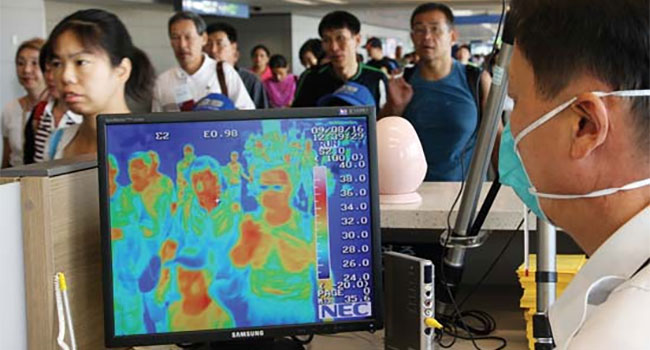
TSA thinking About Temperature Checks and Thermal Imaging
New measures may be encourage social distancing to stop spread COVID-19
- By Ralph C. Jensen
- May 27, 2020
After TSA rolled out a series of new measures May 21, meant to encourage social distancing and stop the spread of COVID-19, the agency also is thinking about checking temperatures and thermal imaging to help screen for the virus.
Acting DHS Secretary Chad Wolf said it is a possible that prior to boarding an aircraft they would be screened for elevated temperatures before they board planes.
“We’re looking at temperature checks, thermal imaging and other technologies to see what we can do to provide some layer of security,” Wolf said Thursday.
Air carrier trade group Airlines 4 America has been pushing federal officials to take on the responsibility of screening passengers for health concerns before they board, however Southwest Airlines Gary Kelly has said the airlines are not equipped to implement such measures.
“In terms of our airport environment, we are recommending that the TSA undertake temperature checks at the screening checkpoint,” Kelly said.
Airline executives say such measures would not be a cure all for stopping the spread of COVID-19. Wolf recently took a tour of Alliance Airport, located in Fort Worth Texas.
“We’re not going to eliminate risk, we can never eliminate risk,” Wolf said. “How do we buy that risk down? And I think that’s what we’re looking at how do we buy that down so that we make sure that folks perhaps with elevated temperatures, perhaps are at the beginning of feeling sick, we can identify those individuals and not have them fly.”
Airlines have recently asked that travelers wear face masks to help stop the spread of COVID-19. Airlines also have been limiting capacity abroad flights. Major carriers have said they will not enforce face mask rules once the plane has pulled back from gates.
TSA’s newest measures don’t include temperature checks but do help put distance between passengers. Rules also ask passengers to put foods in a separate bag so that security screeners don’t have to handle it. Passengers will also be able to scan their own boarding passes. TSA agents are already required to wear face masks.
About the Author
Ralph C. Jensen is the Publisher/Editor in chief of Security Today magazine.